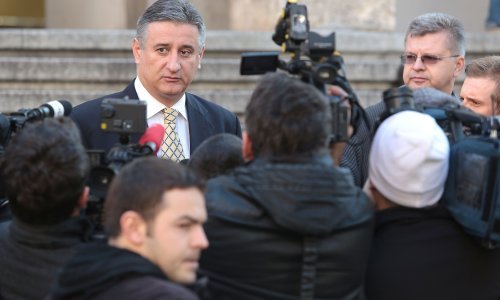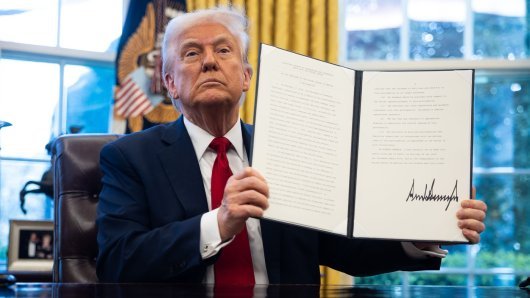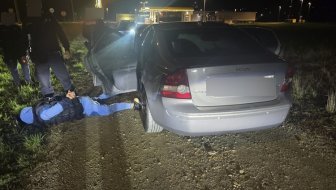A grave in Zagreb's Kustosijanska Street, where exhumation has recently begun, is one of 741 graves in Croatia which, according to Interior Ministry data, could contain the remains of people killed in World War Two and its aftermath.
Of the 741 locations in which remains could be found, 86 have been exhumed and examined in part since 1992. For the locations where exhumations have not been carried out, local police departments have submitted reports to county prosecutor's offices, which are expected to ask courts to order the exhumations, according to the Interior Ministry.
The highest number of graves, 26, have been discovered in the Macelj area in northern Croatia, hiding the remains of 1,163 people, including 23 members of the clergy. The police assume the area could hide about 130 mass graves with a total of 15,000 victims.
The remains of about 470 people have been exhumed from the Jazovka pit on the Zumberak mountains. The victims were mainly wounded soldiers, medical staff and nuns taken from hospitals.
The remains of some 450 people have been found in Slatinski Drenovac, Virovitica-Podravina County, and about 400 - captured German and Croatian Home Guard soldiers - have been found in Bujadnik, a forest on Petrova Gora mountain.
The remains of about 230 people have been found in Lug, a forest near the northern city of Bjelovar; about 120 have been found in the municipality of Veliko Trgovisce; about 100 in Podima, a pit near the town of Trilj; and about 40 have been found in the Krstovaca forest on Bilogora mountain. All were captured German and Croatian Home Guard soldiers.
Civilians and soldiers of the 1941-45 Independent State of Croatia were thrown into karst pits in the coastal regions, the islands, and in Lika, according to Interior Ministry data resulting from a research organised by the former parliamentary commission for war and post-war victims.
Zagreb police have said the exhumation in Kustosijanska Street is still under way and that human remains have been unearthed. Unofficially, the remains of nine persons have been dug out. This grave was discovered by the capital's residents in late June last year, when they found human bones, pieces of clothing and other items belonging to people allegedly killed there in May 1945. Citing the street's elderly residents, the media have said the victims were 17 German soldiers killed by the Partisans.
Police have pressed charges at the State Prosecutor's Office (DORH) in five cases of Partisan war crimes against unknown and one identified perpetrator. Individuals and various associations have pressed charges in 39 cases.
DORH has been unavailable for the latest data on the charges pressed for Partisan war crimes. According to data released in March 2009, 29 persons were charged. Most charges were pressed against unidentified perpetrators. Two referred to crimes committed by the Ustasha (Milivoj Asner and Ivo Rojnica), while the rest referred to Partisan crimes. Since most suspects are either deceased or unavailable, proceedings have been refused, stopped or suspended.
Interior Minister Tomislav Karamarko recently said investigations and trials for Communist crimes would be stepped up. The filing of indictments for WW2 crimes, primarily those committed by the Partisans, was announced by the 2001 government, but no case has come to trial.




































